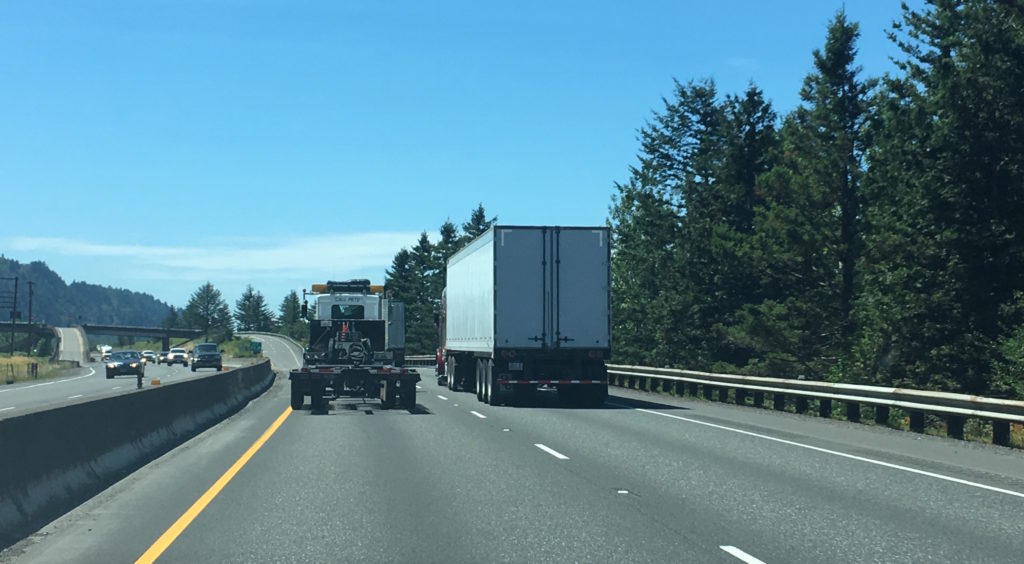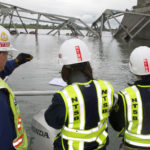A lack of safe truck parking may lead to more truck crashes.
Oregon State University researchers looked at truck parking as a public safety issue (PDF). They studied a 290-mile section of Highway 97, a major trucking route that runs along the eastern slope of the Cascades across the whole length of Oregon.

Some truck companies use Highway 97 through Oregon to bypass the steeper grade on I-5, even though it has less parking and fewer services.
More truck parking = fewer crashes?
They found that in just 7 years, the damages from crashes caused by truck drivers ran up to $75 million in “crash harm.”
They also found that the demand for truck parking far exceeded the capacity of rest areas and truck stops on one of Oregon’s busiest highways.
“There is an inherent safety concern for all highway users,
primarily due to trucks parking in undesignated areas or commercial motor vehicle drivers
exceeding their HOS to find safe and adequate parking.”
–Salvador Hernandez, lead transportation safety and logistics researcher at OSU.
Oregon is not the only state that may need to add parking for large commercial trucks.
The Washington State Department of Transportation found that both I-5 and I-90 were over capacity for truck parking more than 10 years ago.
More recently, 75% of truckers reported frequent problems with “finding safe parking locations when rest was needed” to the Federal Highway Administration.
Preventing tired trucking
If truck drivers can’t find a place to park for their required rest stops, not only are they in violation of Hours of Service laws, they are more likely to be tired and distracted.
All tired drivers are dangerous. But tired truckers are exponentially more dangerous.
Because without a focused, well-trained driver, an 80,000-pound semi-truck going 70 mph on a busy highway is basically a traveling time bomb.

Commercial truck drivers shouldn’t be stuck hunting for a place to sleep when they are legally required to stop driving. Truck drivers and motor carriers have a duty to plan routes with scheduled rest stops.
If bad weather, heavy traffic, busy loading docks, or anything else throws a truck off that schedule, a dispatcher should be available to help.
More safe truck parking may help prevent violent collisions, but it is not a quick fix.
In the meantime, proper route planning and motor carrier support are essential to safe trucking.

How a trucking company’s failure to prepare led to
the collapse of the Skagit River Bridge in Washington State.

Leave A Comment